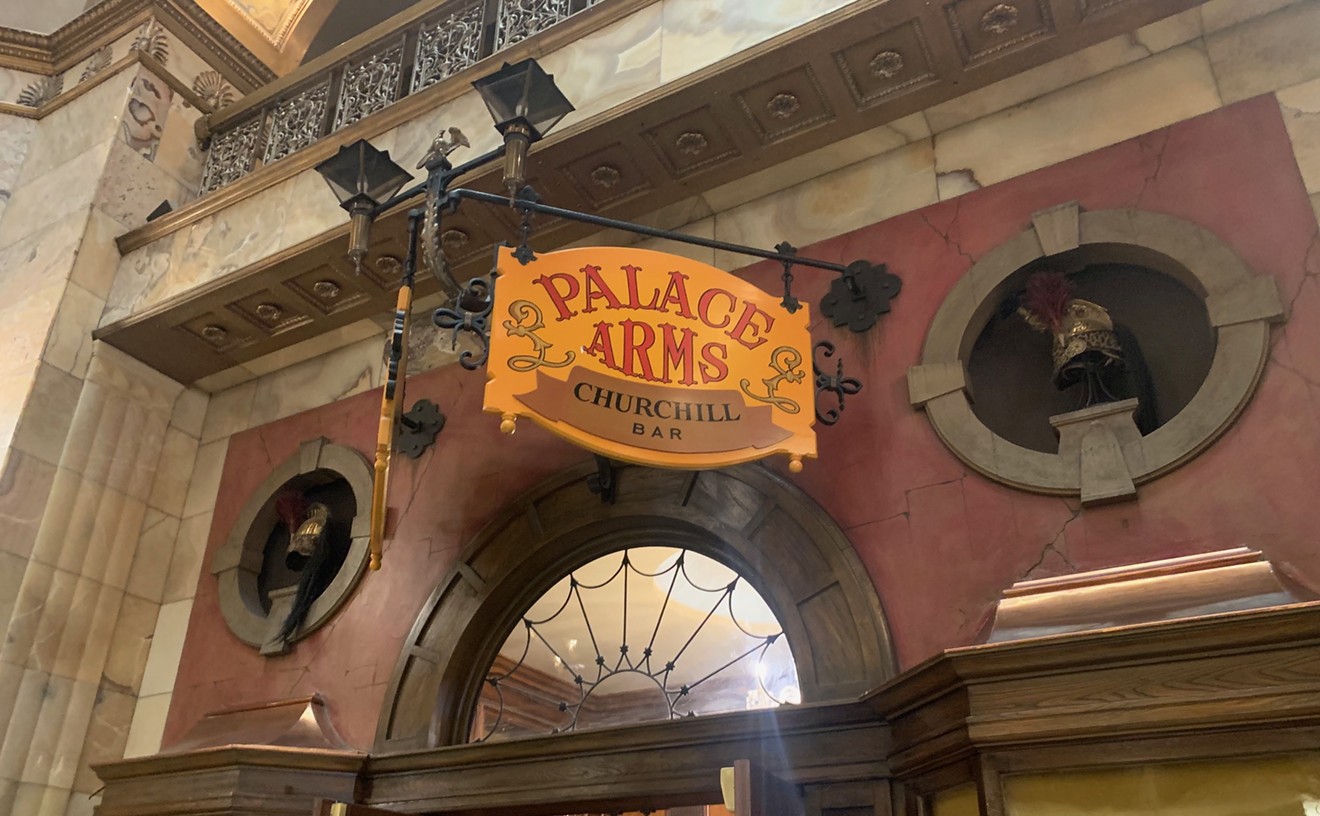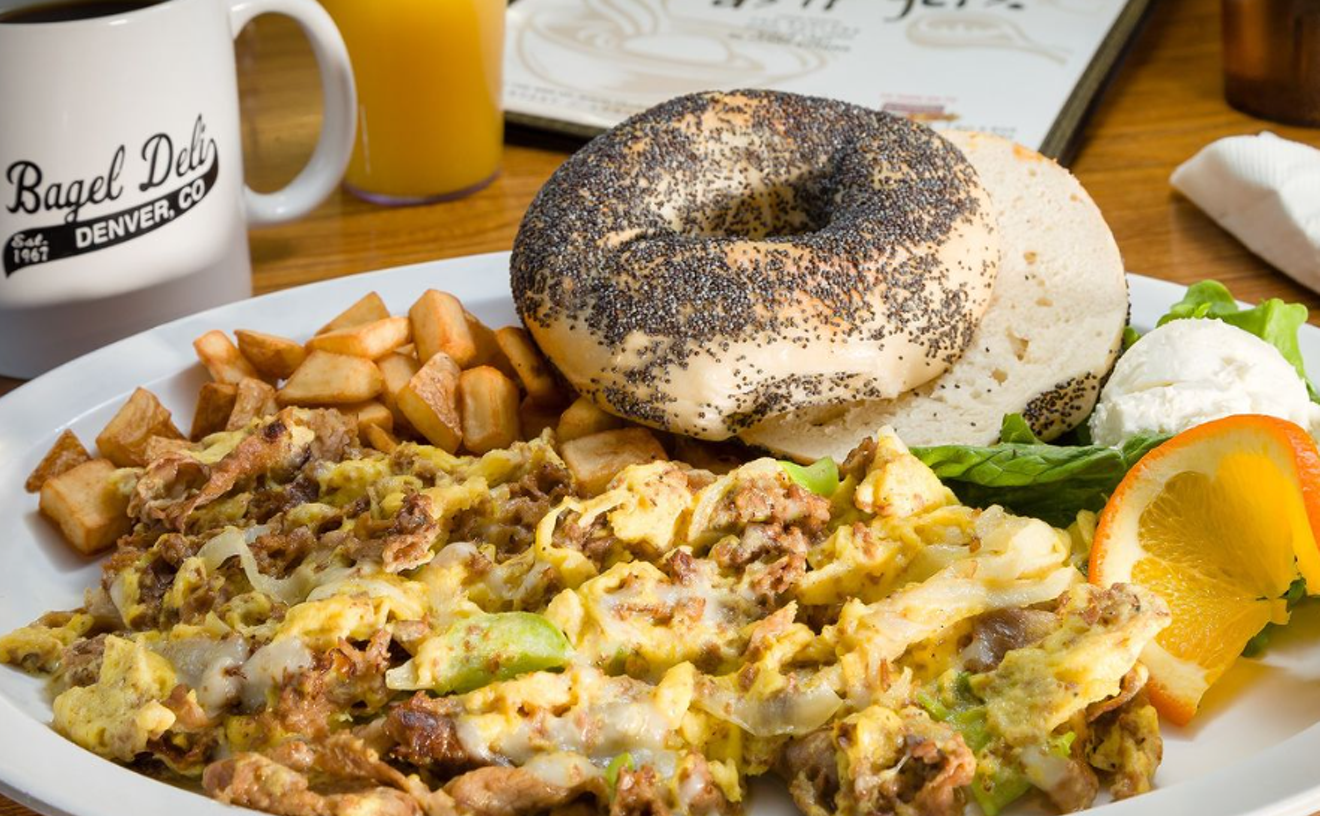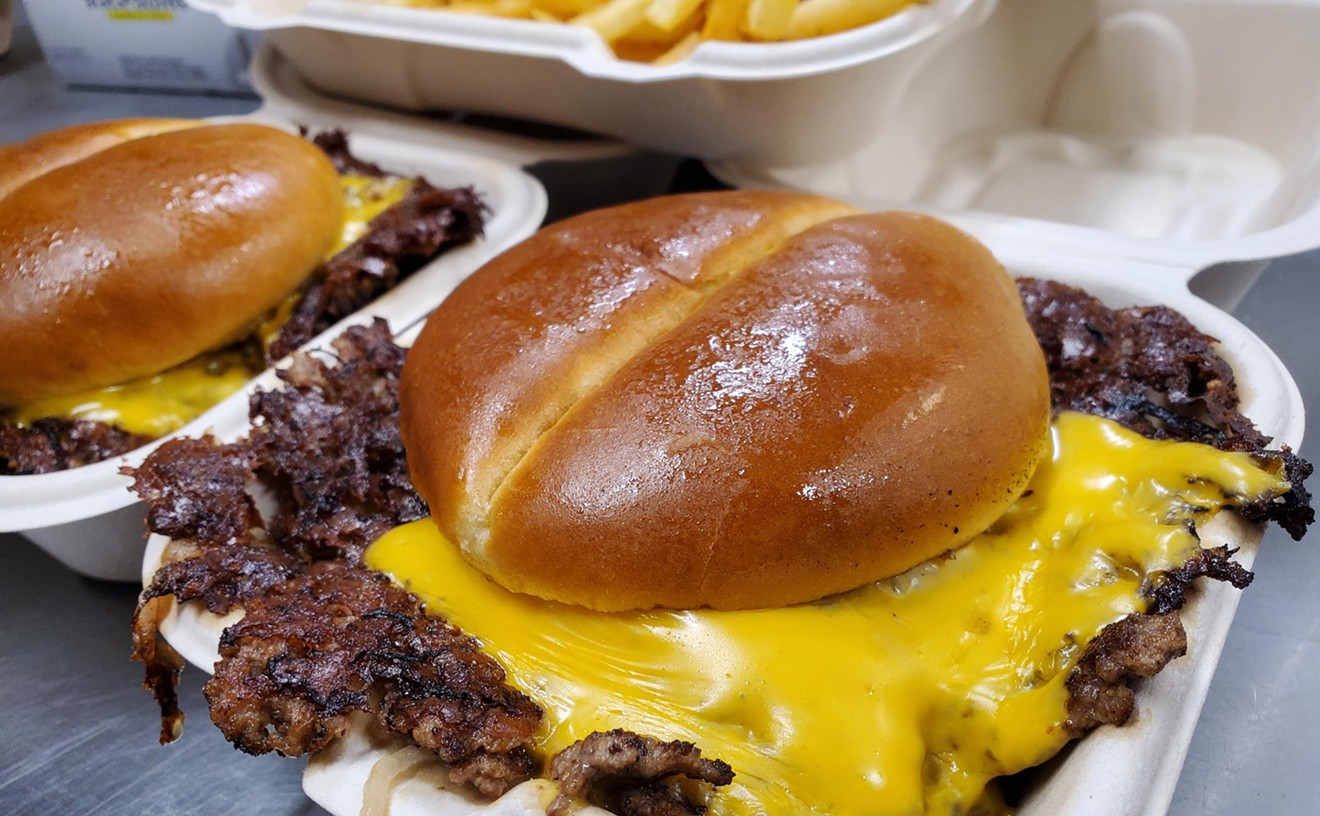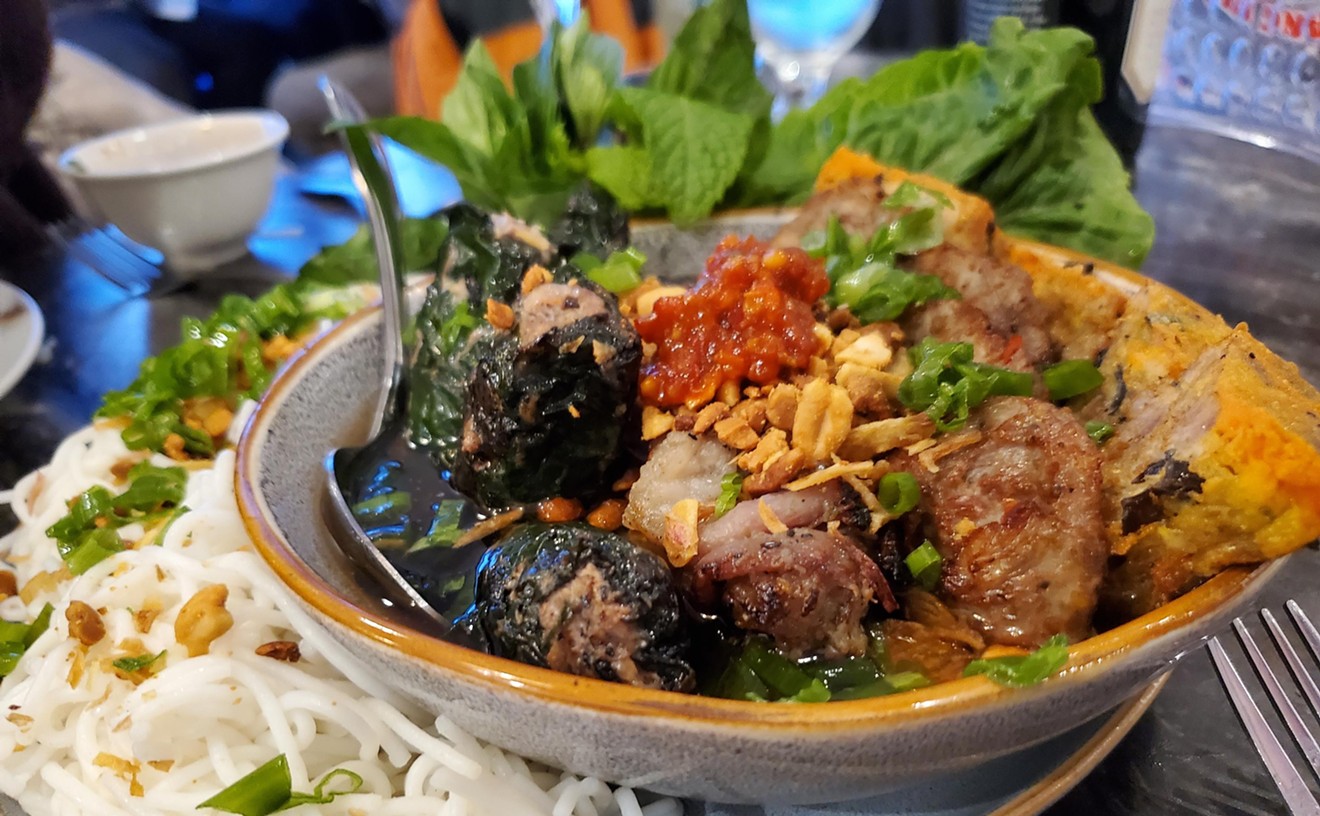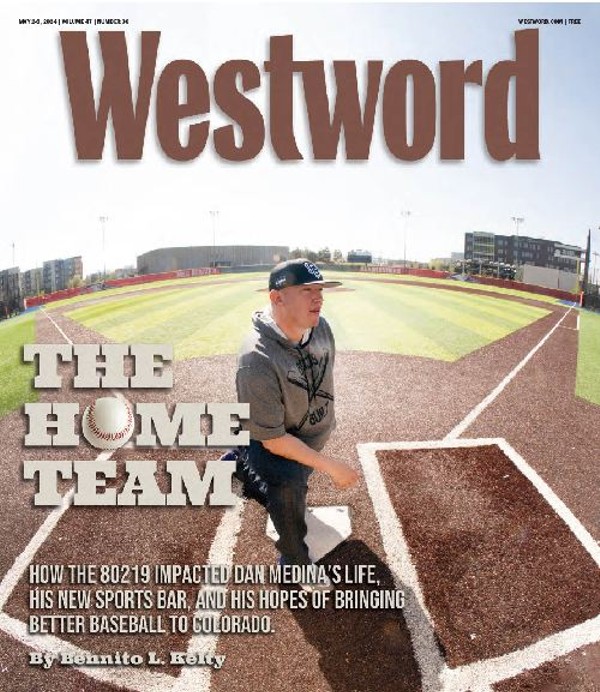Jozi's Kitchen & Shebeen Brings South African Street Food to River North
Angus and John Hicks of Jozi’s Kitchen & Shebeen Brothers Angus and John Hicks grew up in apartheid-era Johannesburg, South Africa, where illegal bars and restaurants called shebeens were a part of the culture. For decades, native Africans had been prohibited from purchasing alcohol in liquor stores and bars, so the...
May 13, 2015
[
{
"name": "Air - MediumRectangle - Inline Content - Mobile Display Size",
"component": "12017618",
"insertPoint": "2",
"requiredCountToDisplay": "2"
},{
"name": "Editor Picks",
"component": "17242653",
"insertPoint": "4",
"requiredCountToDisplay": "1"
},{
"name": "Inline Links",
"component": "18838239",
"insertPoint": "8th",
"startingPoint": 8,
"requiredCountToDisplay": "7",
"maxInsertions": 25
},{
"name": "Air - MediumRectangle - Combo - Inline Content",
"component": "17261320",
"insertPoint": "8th",
"startingPoint": 8,
"requiredCountToDisplay": "7",
"maxInsertions": 25
},{
"name": "Inline Links",
"component": "18838239",
"insertPoint": "8th",
"startingPoint": 12,
"requiredCountToDisplay": "11",
"maxInsertions": 25
},{
"name": "Air - Leaderboard Tower - Combo - Inline Content",
"component": "17261321",
"insertPoint": "8th",
"startingPoint": 12,
"requiredCountToDisplay": "11",
"maxInsertions": 25
}
]
Angus and John Hicks of Jozi’s Kitchen & Shebeen
Brothers Angus and John Hicks grew up in apartheid-era Johannesburg, South Africa, where illegal bars and restaurants called shebeens were a part of the culture. For decades, native Africans had been prohibited from purchasing alcohol in liquor stores and bars, so the shebeens supported a speakeasy-style world of hidden freedom — and tasty street food. Angus recalls pedaling his bicycle to a shebeen near his home for fish and chips when he was fourteen, and by age sixteen (then the legal drinking age in South Africa), he and his friends were riding their 50cc motorcycles to shebeens to drink beer and enjoy the social life. In many areas of the country, these were the only spots where black and white customers could socialize under one roof. “They were a place where people went to have refuge, talk about the government, and have a good time without anyone looking over their shoulder or writing down what they were saying,” Angus explains.
Many years later and a continent away, the Hicks brothers are channeling their early memories into a new food stand called Jozi’s Kitchen & Shebeen, which made its debut earlier this month at TheBigWonderful, the outdoor food, beverage and crafts market that sets up every Saturday in RiNo.
John, the older brother, came to the United States — where their father was living — soon after he turned eighteen, because staying in South Africa meant choosing between joining the army (service was mandatory at that time), going to jail or registering as a conscientious objector (which generally meant jail time, too). “The last thing I wanted to do was serve in an apartheid army,” he remembers. Instead, he enrolled at North Georgia College, one of the six senior military colleges in the U.S. “I didn’t have a problem with the military; I just didn’t want to be in a racist army,” he explains.
But after graduation, he broke his back in a car accident, returned to South Africa to recuperate — and was promptly drafted. He registered as a conscientious objector, eventually going AWOL and returning to the U.S. He lived and worked without documentation for a while; eventually, he got his immigration status sorted out and began a career as a litigation graphics consultant. “It’s sort of a niche-niche-niche market,” he jokes. He only recently moved from New York City to join Angus in Denver.
Angus was seventeen when he visited his father in Atlanta, Georgia with the idea of living “stateside” permanently. But his father, who was part of a family whose entrenched culture supported the apartheid system, proved to be less than an ideal host. “We grew up very liberal in South Africa,” Angus says. “All of my family who were Afrikaner, we didn’t get along with. We couldn’t buy into our dad’s culture.”
When Angus wanted to find his first job, his dad got him a Social Security number — which turned out to be fake. And when he turned eighteen and decided he wanted nothing more to do with the man, his father refused to sign the sponsorship papers to renew Angus’s visa. And so Angus was stuck in Atlanta as an undocumented immigrant, but he managed to find work anyway. “I started out in fast food and worked my way up,” he recalls. The bombings during the 1996 Summer Olympics in Atlanta worried him, though, and so he took the advice of another family member and moved to Denver. Here he got work at the Chinook Tavern under chef Markus Georg, followed by several years as sous-chef at Potager under chef-owner Teri Rippeto. Now a longtime legal resident, Angus has been working as a social-studies teacher for the past several years.
Together again in Denver, the brothers talked about how hard it was to come by the foods they’d grown up with, including biltong, a dried beef snack similar to jerky. They decided to make their own, and that led to the formation of Mile High Dry Goods, a company they started through Kickstarter to sell their own biltong as well as droëwors, a South African-style dried sausage. Biltong and droëwors are both natural products that use grass-fed beef and no preservatives other than salt and sugar; unlike jerky, they’re air-dried rather than smoked, so the texture is softer and the flavor milder. But no sooner had they founded the company than “the price of beef doubled,” John remembers. “We were only able to fulfill the orders from the Kickstarter pledges. That was our first business lesson.”
Still, South African expats had discovered the brothers’ products at the Friday Night Bazaar, an offshoot of TheBigWonderful that was introduced in March, and their booth found other fans, too, even though there was some confusion at first. “People see ‘tong’ in the name and think it’s tongue,” John says, so the brothers now include both a pronunciation guide and a definition on the back of the packaging. “And once you look at the back of the bag and there’s only seven ingredients, people become curious.”
Those seven ingredients are simply beef rump (“bil” in Dutch; “tong” means strip), salt, sugar and seasonings. The droëwors sausage sticks include beef, pork, lamb and spices — including green chiles, a nod to Denver, which the brothers agree has many similarities to Johannesburg. Both cities are a mile high (hence the name of their company) and have a common climate (except for Colorado’s far colder winters) and topography. “It really reminds me of South Africa,” says Angus, “especially out in the plains and around Golden.”
After Denverites got a taste of the South African snacks, they asked the brothers about other dishes from their native country, so Angus and John decided to start Jozi’s Kitchen & Shebeen, thinking that they could do catering while partnering with TheBigWonderful to test the concept before moving on to something bigger. Jozi’s — named for Johannesburg — fits in with the DIY aesthetic of TheBigWonderful, but it also captures the low-budget, temporary nature of the original shebeens in that South African city. Angus hired a barn builder to weld together the frame and then built the rest of the unit in his garage from corrugated steel and plywood. The interior has modern kitchen amenities like refrigeration, a steam table, a hand sink and stainless-steel prep surfaces. Outside the shack, there are pits for charcoal fires, over which sit two cast-iron cauldrons that the crew uses to cook up stews and curries in large batches. There’s also an outdoor grill for braai — South African barbecue.
Angus turned to his former chefs, Georg and Rippeto, to draw from their expertise in restaurant setup, food costs and other aspects of a food-service operation. “Teri and Markus run two completely different operations,” he says. “I get two completely different perspectives, but they’ve both been really great.”
Almost all of the recipes came from the brothers’ grandmother and an aunt who ran a coffee shop and a market restaurant that was only open on Wednesdays and Fridays; Angus still calls his mom back home for advice. “South Africa is a melting pot of cultures,” Angus explains. “French, Dutch, Indian and African.” The food reflects that, with influences from several African countries as well as Europe and India.
“There’s wonderful food with awful names,” adds John. “Trainsmash gravy, monkey gland sauce.” There’s no actual monkey or gland in the sauce that’s commonly used as a condiment for meat, he notes; trainsmash is a tomato-and-onion gravy typically served with pap, a maize-meal porridge similar to polenta. Other dishes on the Jozi’s menu include bunny chow, a hollowed-out quarter of a bread loaf filled with Durban curry (Angus makes it vegetarian); grilled boerewors sausage (a country-style sausage that Angus and John make in their commissary kitchen); and beef and lamb bobotie, a kind of meat pie with an egg-custard topping. Since biltong isn’t as chewy as American jerky, it can be used in sandwiches; Angus also makes a biltong banh mi using bread sourced from a Vietnamese bakery in Denver. The menu changes from week to week, but “it captures the essence of the shebeen, with nice food, a minimum of ingredients and a maximum of flavor,” John says.
“It’s lekker,” adds Angus, using a South African term. “Something really, really nice.”
The brothers hope to open their own brick-and-mortar restaurant, a fast-casual version of Jozi’s, in the next year or so. Angus would love to keep it near Five Points (he lives in the neighborhood), and John wants to make sure the food stays true to its roots, with clean, locally sourced ingredients (other than the maize meal they buy imported from South Africa and the piri piri, or African bird’s-eye chiles, that are essential to the flavors of the sauces). They’re also looking to build the catering arm of the businesses, and already have shelf space for the biltong at two local stores, GoBistro on Broadway and Spinelli’s Market on East 23rd Avenue.
TheBigWonderful kicked off the second season of its outdoor market on Saturday, May 2, and despite the cool weather, thousands of Denverites showed up...and got their first taste of South African food. The gates opened at noon, and “by four o’clock we were done,” Angus says. “We sold everything. It was a really nice debut for Jozi’s.”
It wasn’t just nice — it was lekker.
BEFORE YOU GO...
Can you help us continue to share our stories? Since the beginning, Westword has been defined as the free, independent voice of Denver — and we'd like to keep it that way. Our members allow us to continue offering readers access to our incisive coverage of local news, food, and culture with no paywalls.
Can you help us continue to share our stories? Since the beginning, Westword has been defined as the free, independent voice of Denver — and we'd like to keep it that way. Our members allow us to continue offering readers access to our incisive coverage of local news, food, and culture with no paywalls.
Mark Antonation is the former Westword Food & Drink Editor. In 2018, he was named Outstanding Media Professional by the Colorado Restaurant Association; he's now with the Colorado Restaurant Foundation.
Contact:
Mark Antonation
Follow:
Instagram: @mantonation


Newsletter Sign Up
Enter your name, zip code, and email
I agree to the Terms of Service and
Privacy Policy
Sign up for our newsletters
Get the latest
Food & Drink news,
free stuff and more!
Trending
Use of this website constitutes acceptance of our
terms of use,
our cookies policy, and our
privacy policy
Westword may earn a portion of sales from products & services purchased through links on our site from our
affiliate partners.
©2024
Denver Westword, LLC. All rights reserved.
Do Not Sell or Share My Information
Do Not Sell or Share My Information



